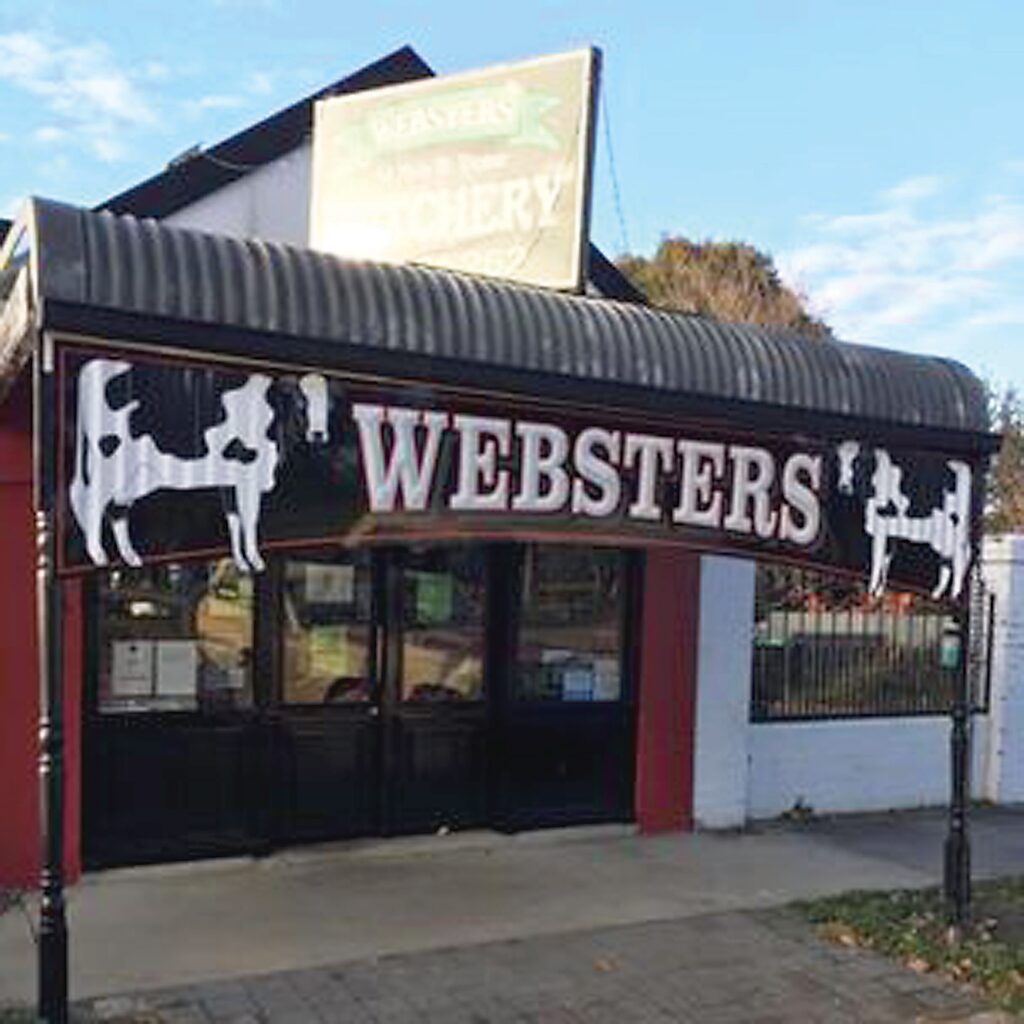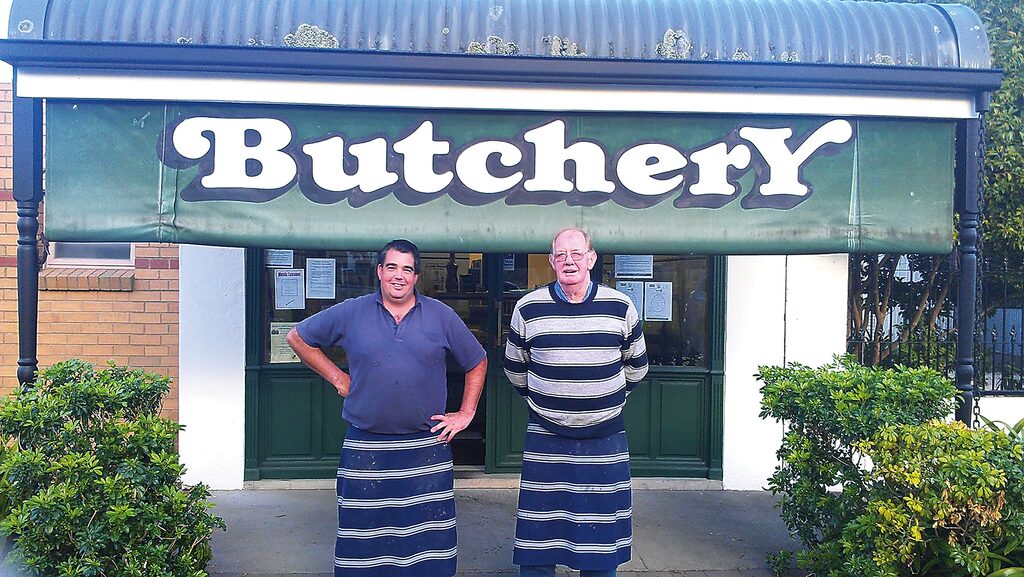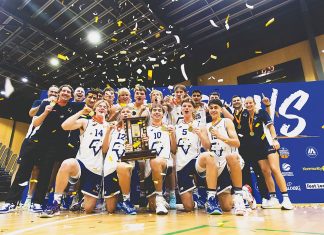By PHILIP HOPKINS
BRETT at Websters Butchery in Yinnar may not be known as the ‘Sausage Man’ but he may as well be. Lovers of the traditional ‘snag’ have access to 30 to 35 different species at the well-known meat outlet.
“We are well known for our sausages – we have won a lot of awards for them, as well as our ‘burgers’. Of the 30-35 different sausage varieties, we mostly make two or three available each week.
We rotate it all,” said Brett, who bought the shop about 10 years ago from its founder, Colin Webster.
“The plain sausages, traditional beef sausages, sell the best, but beef, lamb and pork make different flavours.”
When Brett bought Websters, he kept the original name.
“My surname is Ciantar – that’s why that’s why I left it as Websters; no one would be able to pronounce my surname, which is Maltese,” he said.
There’s also some Scottish and Irish in his background.
“People like things that have been going for a long time. Some people like to change the name; I personally prefer not to, especially in small towns,” he said.
Brett has been a butcher for more than 30 years since starting out aged 16.
Originally from the Mornington Peninsula, he’d worked around the traps before settling in the Latrobe Valley in 2001, buying a 10-acre hobby farm at Boolarra where he ran sheep.
That was fine until 2009 when he was burnt out by the Black Saturday bushfires.
He had to “pick up the pieces” and start rebuilding, turning the property into a working farm of pigs and sheep.
“I worked in a couple of different places, but ‘Webby’ had been hassling me since the fires about buying here, so he urged me to come back here and get back into butchering. ‘Webby’ had been here for 10 years – he owned this place but wanted to get out and thought I was the right person to take over,” said Brett.
Over the years, he has developed a special relationship with different farms in the district, buying meat directly from them and sell the produce through the shop.
Radford’s award-winning abattoir in Warragul plays a key role in Websters’ success. Brett sends local cattle there for processing and also sources other beef and lamb from Radford’s.

It’s all Gippsland meat.
However, beef is not the only ‘game in town’; “We sell normal meat cuts as well, a mixture of all – beef, port, lamb, chicken. Beef and lamb are still the most popular, but sales drop off as prices or interest rates are up. It depends on the price – what people are prepared to pay. We definitely notice the drop-off,” he said.
Whatever, there is a steady flow of people through the Yinnar outlet.
Yinnar is about 20 minutes from Morwell, but Websters gets a lot of customers from Traralgon, Morwell and Moe.
“People come from Grantville, Gormandale – regulars who stock up,” Brett said.
“It’s a large area people come from, but we – little butcher shops – are definitely a dying trade and breed. Supermarkets hit you, but we definitely have a better product. A lot of our prices are the same – but in some places, our prices (are) much cheaper. Supermarkets make their own rules.”
Brett works with Steve Barry, while Lisa O’Reilly also helps out as a casual.
“We’ve both worked in supermarkets in the past – we know what we are talking about. Our point of difference – is service – and we have 60-plus years’ experience,” he said.
The cash register is kept busy, but it can vary from week to week. On the day before our most recent conversation, there were 90 ‘eftpos’ transactions, plus another 30 to 40 in cash.
With often more than 100 customers a day, that makes regularly well over 500 customers a week.
“It’s a crystal ball, a guessing game, how much to buy,” Brett said, but fresh product constantly comes in during the week.
The seasons have an impact.
“It’s pretty consistent throughout the years, you definitely notice winter and summer – more barbecues in summer or slow-cook roasts in winter.”
One disadvantage is that without the range of abattoirs, it’s a long way to processors; pigs go to Laverton or Orbost, beef and lamb at Radford’s, while chicken is processed at Carrum Downs in south-east Melbourne.
There are a few venison farms, but no venison abattoirs.
“I do venison ‘snags’, but it depends on getting the meat,” Brett said.











